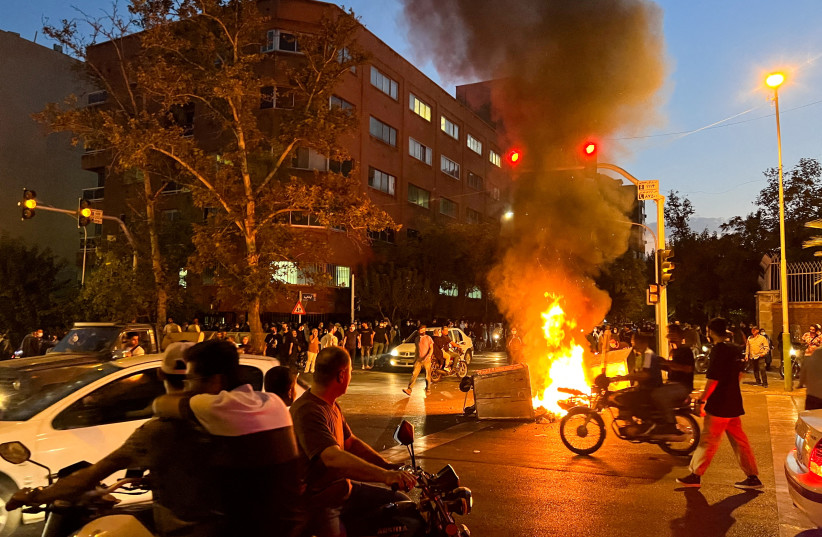Islamic Revolutionary Guard Corps (IRGC) head Hossein Salami headed to southwest Iran this weekend to personally view the problems the regime has faced in its Sistan-Balochistan Province. This is particularly the case in Zahedan, a city Salami visited.
Unrest there has claimed the lives of members of the security forces, and Iran’s regime has responded by massacring people. However, the regime doesn’t just want to massacre, it wants to try to speak to the locals and turn a corner of the two-month-long protests.
Toward that end, Salami went down to Balochistan and gave a speech in which he tried to embrace Sunnis and Shi’ites, and to speak about the land as having a “spirit of unity” that is flowing throughout Iran. This is largely an illusion because people in Balochistan are angry. Like the Kurds, they feel disenfranchised by the regime.
Iran has already imposed a brutal crackdown on the Kurdistan region, where the protests began two months ago. Iran has also fired rockets and used drones to attack Kurdish opposition groups in Iraq. Iran claims that these groups traffic weapons across the border.

The situation in southwest Iran is more complex.
In that area, there are long-simmering tensions and groups that oppose the regime. Across the border in Pakistan, the area of Balochistan is also one that has a history of opposing the Pakistani government. This is because Iranian and Pakistani rule has been imposed on this region, populated by minorities.
Salami used his visit to discuss enemies and to talk about unity. He tried to portray people in the region as having played a role in fighting alongside their other Iranian brothers during the war against Iraq in the 1980s. Salami slammed the “Zionist” regime and claimed Israel would collapse.
“We are determined against them,” he said. “We will definitely turn this new battle scene, this huge sedition scene, and this world war into a burial ground for the policies of America, Israel and its allies.”
Salami’s visit and speech show how the regime is trying to shift the narrative on the protests, and that it is increasingly relying on the IRGC to either put down the protests or explain to the people why they should support the regime. The problem for the regime is that its playbook has been the same for decades. It blames the US and Israel. However, it is unclear if the average person on the street still buys this propaganda.
